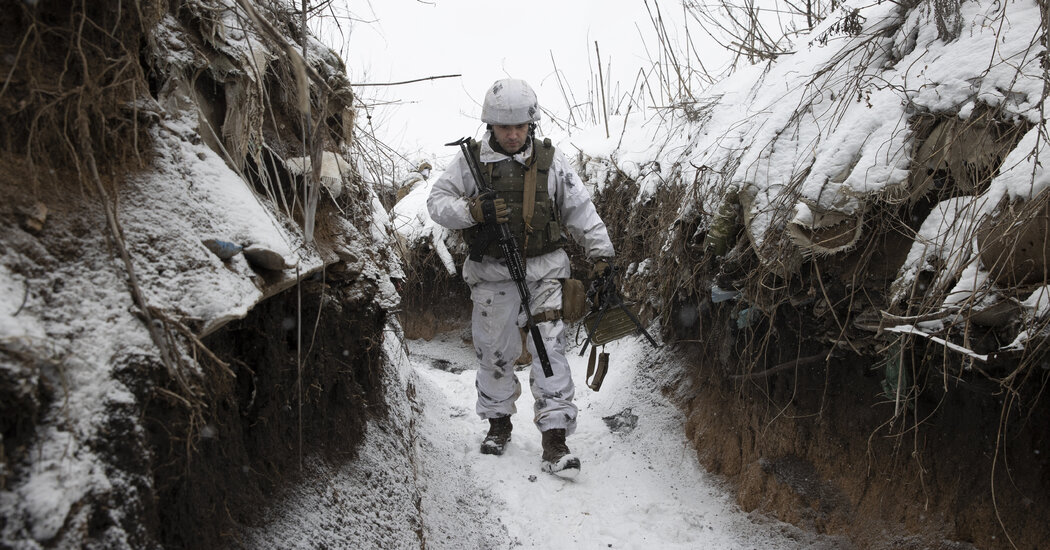
PARIS — Bringing together senior Russian and Ukrainian officials, France and Germany tried on Wednesday to coax the countries into easing tensions between them, before planned talks on Friday between the French and Russian presidents.
With Russian forces massed near the borders of Ukraine, senior diplomats at the gathering known as the Normandy Format — a diplomatic grouping of France, Germany, Russia and Ukraine that has met occasionally since 2014 — discussed how to lower the temperature in their standoff.
After more than eight hours of talks in Paris, the group released a statement, through the French presidency, reaffirming unconditional support for the 2015 cease-fire, updated in 2020, between Russia-backed separatist forces in eastern Ukraine and the government in Kyiv.
The statement made no direct mention of worries about a potential Russian invasion of Ukraine, as the discussions focused instead on the cease-fire agreement, known as the Minsk Accord, which the Normandy group helped broker. The diplomats will meet again in Berlin in two weeks, it said.
A senior official in the French presidency said the discussions were “difficult” but somewhat encouraging. The official, speaking on the condition of anonymity in keeping with French government practice, said the meeting was a way to “test the willingness of the Russians to negotiate.”
“Our conclusion is that we got the sign of re-engagement that we were looking for,” the official said.
For President Emmanuel Macron of France, the meeting offered an opportunity to showcase Europeans trying to solve Europe’s problems. He has made what he calls “European strategic autonomy” — in other words, greater independence from the United States — a central theme of his presidency, while positioning himself as Europe’s de facto leader.
The meeting on Wednesday brought together the Kremlin’s deputy chief of staff, Dmitri Kozak, and the Ukrainian presidential adviser Andriy Yermak. They were joined by the top diplomatic advisers to Mr. Macron and Chancellor Olaf Scholz of Germany.
Russia’s core demand is that Ukraine never become a member of NATO. In 2008, NATO leaders declared that Ukraine and Georgia, former Soviet republics, “will become members of NATO.”
The timing for such membership was left open, and there has been little or no progress toward it in the almost 14 years since, but the statement has remained a thorn in Russia’s side. For Mr. Putin, it was part of a series of humiliating faits accomplis presented to Russia after the collapse of the Soviet Union, as NATO has expanded east and lands that had been under Moscow’s thumb moved into the Western sphere. Now the Russian leader seems determined to impose his own outcomes on the ground.
Separate talks on Ukraine between the United States and Russia, held mainly in Geneva in recent months, have left France uneasy. “President Biden and Putin in Geneva discussing Europe eclipses Macron,” said Jacques Rupnik, a prominent political scientist. “So this meeting today was important for him on the symbolic level.”
With a presidential election looming in April, the longtime German Chancellor Angela Merkel now gone, and France holding the rotating presidency of the European Union for the first time since 2008, Mr. Macron is eager to demonstrate decisive European leadership. It is not clear, however, that the rest of Europe is prepared to follow him.
The Normandy group formed after Russia seized Crimea from Ukraine in 2014. It offered a context for talks that exclude the United States, without getting bogged down in U.S.-Russia disputes. Its name stems from the date of the group’s creation, June 6, 2014, the 70th anniversary of the D-Day landings in Normandy, France, during World War II.




